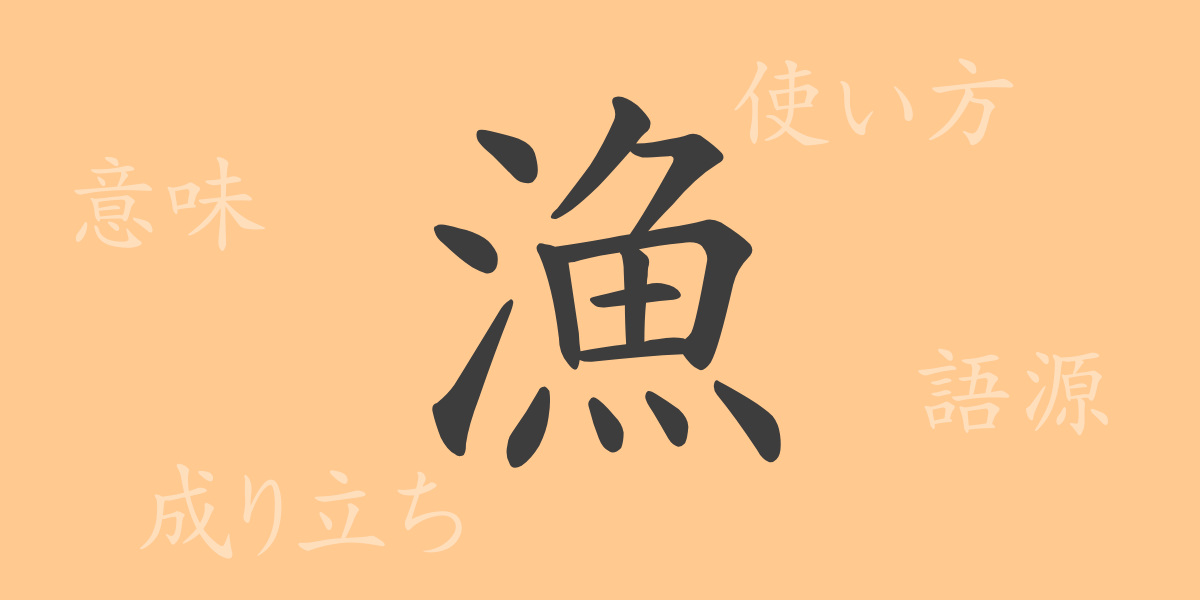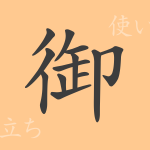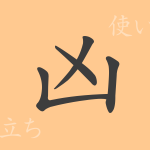The character “漁(りょう, ryō)” evokes the scent of the sea. This single kanji carries a history deeply intertwined with Japanese life. “漁(りょう, ryō)”, associated with the pursuit of catch in the sea or river, permeates not only food culture but also the language itself. In this article, we explore the etymology, meaning, usage of the kanji “漁(りょう, ryō)”, and delve into the idioms and phrases that resonate in the hearts of the Japanese people.
Origin of 漁(りょう, ryō)
The origin of “漁(りょう, ryō)” dates back to ancient China. This character, meaning “to catch fish”, combines the water radical “水(みず, mizu)” with the character for “fish” (魚(さかな, sakana)), indicating activities by the water. Since ancient times, fishing has been a vital profession closely linked to people’s lives, and this kanji reflects its importance.
Meaning and Usage of 漁(りょう, ryō)
The primary meaning of “漁(りょう, ryō)” is to catch fish or marine products in the sea or river. Broadly, it can refer to any activity involving the harvesting of resources from nature, such as hunting or gathering. In terms of usage, it is often seen in words related to fishing, such as “漁業(ぎょぎょう, gyogyō)” (fishing industry), “漁師(りょうし, ryōshi)” (fisherman), and “漁船(ぎょせん, gyosen)” (fishing boat).
Readings, Stroke Count, and Radical of 漁(りょう, ryō)
The kanji “漁(りょう, ryō)” is a familiar character in Japanese.
- Readings: On-yomi – “ギョ(gyo)”, Kun-yomi – “りょう(ryō)”, “いさる(isaru)”
- Stroke count: 14 strokes
- Radical: The radical is “水(みず, mizu)”, often used in the form of “氵” as the left-hand component.
Idioms, Proverbs, and Phrases Using 漁(りょう, ryō)
Idioms and proverbs featuring “漁(りょう, ryō)” reflect Japanese culture and values. For example, the idiom “漁夫(ぎょふ, gyofu)の利(り)” refers to the situation where a third party gains an advantage from the conflict between others. The term “漁火(いさりび, isaribi)” beautifully describes the poetic sight of fishing fires floating on the sea at night.
Summary of 漁(りょう, ryō)
The kanji “漁(りょう, ryō)” not only signifies the act of fishing in the sea or river but also symbolizes the culture that intertwines nature and people’s lives in Japan. This character embodies the wisdom of Japanese life and the history of coexisting with nature. Through this exploration, we hope to provide an understanding of the profound meaning of “漁(りょう, ryō)” and inspire thoughts on the cultural heritage conveyed through language.

























